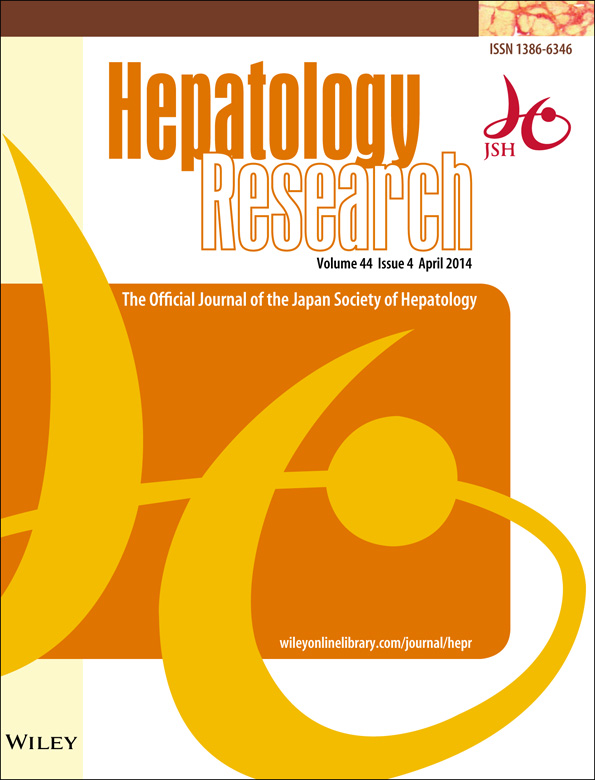Clinical efficacy of combination therapy with ME3738 and pegylated interferon-alpha-2a in patients with hepatitis C virus genotype 1
Abstract
Aim
ME3738, a derivative of soyasapogenol B, enhances the anti-hepatitis C virus (HCV) effect of interferon in an in vitro replication system and an in vivo mouse model of HCV infection. ME3738 plus pegylated interferon (PEG IFN)-α-2a treatment for 12 weeks decreased HCV RNA levels in enrolled late virus responder (LVR) patients with relapsed HCV. Half of the patients reached undetectable HCV RNA level. The present clinical study of ME3738 was conducted in naïve chronic hepatitis C patients to investigate the sustained virological response (SVR) and safety of 48-week treatment with ME3738 plus PEG IFN-α-2a.
Methods
Subjects (n = 135) with genotype 1b chronic hepatitis C with high viral loads were divided into three groups (ME3738 50 mg b.i.d., 200 mg b.i.d. or 800 mg b.i.d.). ME3738 was administrated p.o. and PEG IFN-α-2a (180 μg/week) s.c. for 48 weeks, and SVR was assessed at 24 weeks of treatment-free follow up.
Results
The viral disappearance rates at 12 and 48 weeks were 23.0% and 48.9%, respectively. SVR was seen in 5.9% of subjects. ME3738 did not worsen the adverse reactions generally seen with PEG IFN-α-2a treatment, and any adverse reactions specific to ME3738 were not observed.
Conclusion
ME3738 plus PEG IFN-α-2a treatment to naïve chronic hepatitis C patients showed an antiviral effect and a good safety profile up to 48 weeks. However, HCV RNA was again detected in many subjects after treatment termination. Even though ME3738 is not enough to suppress HCV reproduction in this treatment. ME3738 was concurrently used with PEG IFN-α-2a treatment; however, a clear additional effect on SVR was not confirmed.




